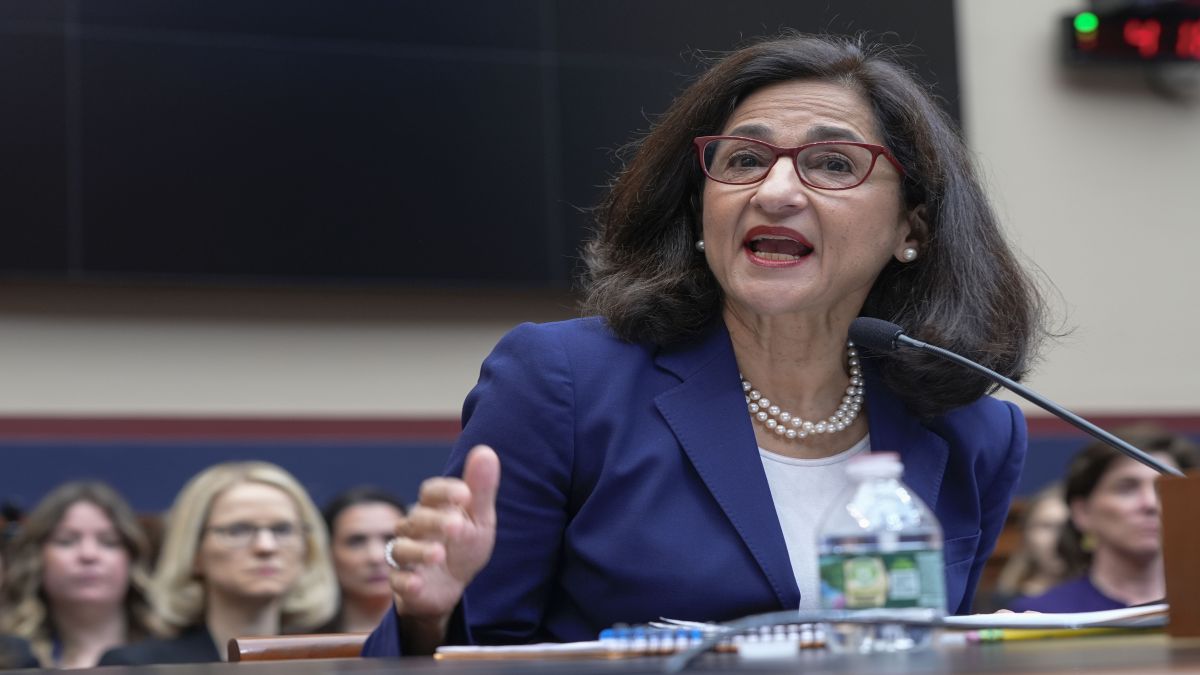Campuses across the United States are embroiled in pro-Palestinian protests. Columbia Universityi in New York is at the centre of the upheaval. Last week, Columbia University’s president, Nemat “Minouche” Shafik, testified before a House committee about the school’s response to allegations of campus antisemitism.
Following the testimony, Shafik requested, in a letter released by the University, that the New York City Police Department remove people encamped on the campus’ South Lawn who were “in violation of the University’s rules and policies” and were trespassing. According to CNN, more than 100 people have been arrested, as per the figures cited by law enforcement.
Shafik is no stranger to navigating complex international issues, having previously worked at some of the world’s most prominent global financial institutions, including the World Bank and the International Monetary Fund, during the European debt crisis and the Arab Spring.
However, this time her name is tied with dramatic images of New York police arresting pro-Palestinian students at the Columbia University campus, less than a year after taking up the role.
But who is Minouche Shafik?
What we know about Minouche Shafik
Born in Alexandria in Egypt, Nemat “Minouche” Shafik was four years old when her family fled the country and moved to the United States.
“I was born into a comfortable family in a society marked by severe inequality,” the British-American told the Columbia Magazine in autumn 2023.
Also Read: American campus protests: Lessons from the Emory epiphanyImpact Shorts
More ShortsBut she said “my family’s prospects changed dramatically in the mid-1960s, when most of our land and property was seized by the Egyptian state as part of Gamal Abdel Nasser’s nationalisation program.”
Shafik found herself an immigrant in the American South “during the desegregation era, amid explosive racial tensions,” an experience that had a “profound effect,” she said.
A graduate of prestigious universities in the United States and the United Kingdom, Shafik went on to occupy various senior posts at the World Bank, the International Monetary Fund and the Bank of England, before being named head of the London School of Economics.
Shafik is also a member of the House of Lords, the second chamber of the UK parliament, a role from which she is currently on leave.
What role does Shafik play in the protests?
Columbia University had already been embroiled in debates, including about the costs of higher education, before Shafik became president last year, making her the first woman to hold the post.
Also Read: No housing, no graduation: What suspension means for pro-Palestine protesters at US collegesBut the war in Gaza, triggered by Hamas’ attack on Israel in October, began a course of turmoil for the college.
Shafik saw the resignations of the presidents of two other universities — including Harvard — brought about over claims they were not doing enough to combat anti-Semitism on their campuses.
On 17 April, it was Shafik’s turn to be questioned by Congress on the issue. She firmly defended her actions and condemned anti-Semitism “that is so pervasive today.”
That same day, Columbia students set up tents on the campus lawns to demand an end to the war in Gaza and that their university cut all ties with Israel.
Shafik called on New York’s police a day later to help disperse the protesters, leading to more than 100 students being arrested.
Also read: First US, now UK, Europe, and Australia: How anti-Israel student protests are going globalThat started a high-profile standoff that continued into this week.
In the Columbia Magazine, Shafik said she decided to become president of the “extraordinary institution” because it was the “most cosmopolitan, outward-looking” of America’s top universities.
“And at a time when universities have a crucial role to play in addressing societal problems, I think that Columbia is positioned to be a tremendous force for positive change, in New York City and around the world,” she said.
Her students, on both sides of the fence, seem to have taken her at her word.
With inputs from AFP
)